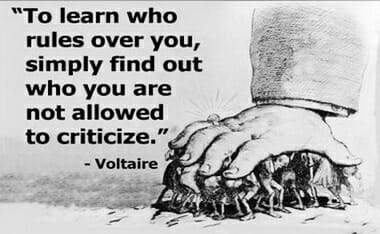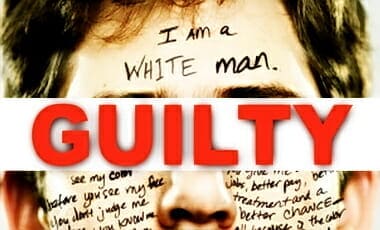Via The Blaze:
Oprah Winfrey made headlines on Monday after saying that in her mind, the deaths of Trayvon Martin and Emmett Till are the “same thing.”
Glenn Beck responded on his television program Tuesday with a thorough overview of both cases, saying Winfrey’s comments are a “slap in the face to the memory of Emmett Till and anyone who suffered during segregation and the Civil Rights era.”
“These are two cases that have nothing in common,” Beck said. “I can’t think what they have in common, honestly.”
Beck began by recapping some of the details of the Trayvon Martin case, which are likely familiar to many at this point. He noted that Zimmerman, who fatally shot Martin in 2012 in what a jury recently ruled was self-defense, had multiple head injuries and a broken nose after his encounter with Martin. He also noted that both the prosecution and the defense said race played no role in the case, among other things.
Emmett Till, on the other hand, was a 14-year-old African American from Chicago who was tracked down, then mercilessly tortured and murdered after flirting with a white woman.
Beck told the story in detail, explaining how Till was visiting relatives in Mississippi when he was killed, and how his mother initially didn’t want him to go on the trip. He spoke about the “racists” who knocked on the door where Till was staying late at night, “demanding to see the n-word who did all the talking,” before kidnapping the child.
“Does this sound so far like the Zimmerman case at all?” Beck asked. “Doesn’t to me.”
…read more…
Also this AMAZING article from the Weekly Standard entitled, A Tale of Two Trials, points out some of the false narratives in the media (an interview with the author, Charlotte Allen, via Dennis Prager follows):
….That was the small stuff. Here is a list of some of the more significant discrepancies between the facts of the Zimmerman case as they emerged in the Bizarro World of outside-the-courtroom commentary and the facts that the jury actually heard:
Zimmerman “stalked” Martin. This was a favorite media meme, typified in a CNN column by Miller Francis: “Was . . . Martin justified in . . . defending himself when this stranger, an apparent stalker, approached him in a threatening manner?” The trial evidence showed merely that Zimmerman briefly ran after Martin while making a 911 call to the police about a suspicious person he saw wandering between some houses in the complex, which had been hit by a wave of burglaries, at least two involving young black men. According to statements Zimmerman made to the police after the shooting, Martin then approached him as he was returning to his car. It should be noted that Zimmerman was legally carrying, under a concealed-weapon permit, the gun with which he shot Martin; a neighbor interviewed by Reuters in 2012 said he had bought it to fight off a periodically loose pit bull that was terrorizing his wife.
Zimmerman was racially profiling Martin. The media picked up this allegation from the prosecution’s affidavit of probable cause filed on April 12, 2012. “It cannot reasonably be disputed that the incident that left Mr. Martin dead began with ugly racial profiling,” NBC News legal analyst Lisa Bloom wrote for the New York Times on July 15. NBC had creatively edited the tape of Zimmerman’s 911 call to make him look fixated on race, leaving out the part where the dispatcher asked for a description. Judge Debra Nelson, who presided over the trial and who was not known for her sympathy for the defense, pointedly barred the use of the term “racial profiling” during opening statements or at any other time. Racial profiling would have been a tough charge in any event to sustain against Zimmerman, who was half-Hispanic, with a Peruvian mother and a black great-grandfather. (The New York Times’s response to the revelation that Zimmerman wasn’t quite the Aryan that the press had initially characterized him as was to dub Zimmerman a “white Hispanic.” Campos of Salon called him “a more or less white man.”)
Zimmerman disobeyed a police dispatcher’s order to stay inside his car and instead embarked on a vigilante quest for Martin. That’s what nearly every newspaper reporter and TV network in America said during the year or so leading up to the trial. “Wannabe cop” was a favorite epithet. As the recording of Zimmerman’s conversation with the dispatcher, Sean Noffke (together with Noffke’s testimony at trial), revealed, Noffke had merely said, “We don’t need you to do that,” when Zimmerman was already out of his car. And judging from the rhythm of Zimmerman’s breathing on the recording, he stopped pursuing Martin a mere 13 seconds after Noffke issued his advice.
Zimmerman provoked the conflict with Martin by confronting him about what he was doing on the premises, effectively nullifying his claim of self-defense. Andrew Reinbach, a blogger for the Huffington Post, wrote on July 16: “It can certainly be argued . . . that Mr. Zimmerman provoked the attack that prompted him to use deadly force against an unarmed teenager who bested him in a fistfight.” (The “fistfight,” according to Zimmerman’s statements to the police, corroborated by the testimony of witnesses at the trial and gunpowder evidence on Martin’s shirt, consisted of Martin’s sucker-punching Zimmerman to the ground and pounding his head into a concrete sidewalk while on top of him.) That Zimmerman started it was one of the prosecution’s theories, but Judge Nelson, rejecting the idea that Zimmerman’s questioning of Martin could amount to provocation, refused to allow a jury instruction on provocation—so it was never an issue in the courtroom trial.
Florida’s generous “stand your ground” law allowed Zimmerman to prevail on a claim of self-defense that would not be permitted in other states. Florida—like the majority of other U.S jurisdictions—does not require someone to retreat if reasonably possible rather than use deadly force against a real or reasonably perceived aggressor who threatens death or grave bodily injury. Florida also—unlike the majority of other U.S. jurisdictions—allows people to use deadly force merely to defend property under some circumstances, such as a home or car invasion. But as Stephen P. Garvey, a professor of criminal law at Cornell University, explained to me in a phone interview, the “stand your ground” doctrine under any interpretation simply wasn’t an issue in the trial, because Zimmerman didn’t draw his gun until it was impossible for him to retreat. As Garvey says, “This is a very bad case on which to base your thoughts about important issues such as racial profiling or the duty to retreat.”
…read more…










